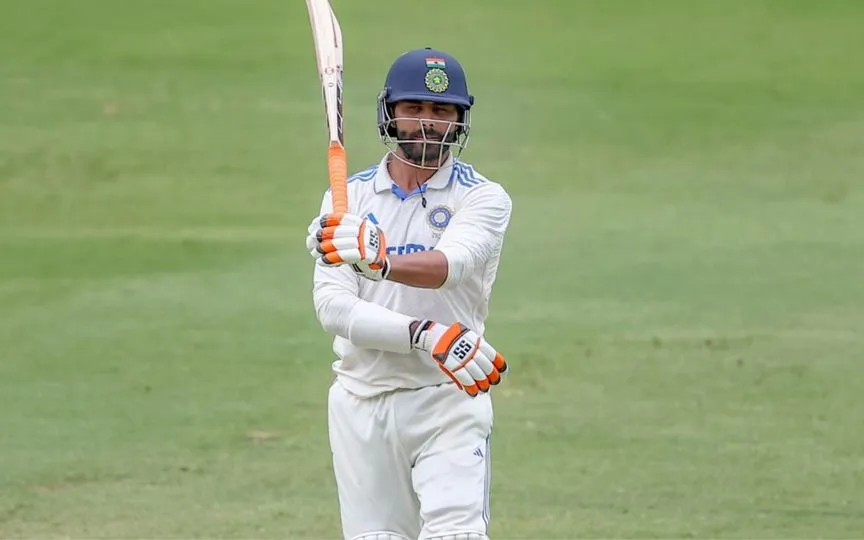![Shubman Gill during his 269 runs knock at Edgbaston [Source: AP Photos]](https://onecricketnews.akamaized.net/parth-editor/oc-dashboard/news-images-prod/1751613664245_shubman_gill(2).jpg?type=hq) Shubman Gill during his 269 runs knock at Edgbaston [Source: AP Photos]
Shubman Gill during his 269 runs knock at Edgbaston [Source: AP Photos]
It will be hard for Shubman Gill to forget the morning of July 2, 2025, at Edgbaston. It wasn't the bright Birmingham sunshine or the occasion that made it memorable. It was the moment that he confirmed the rumours around India's best bowler at the moment, watching the match from the sidelines.
The decision to rest Jasprit Bumrah for the Edgbaston Test match sent shockwaves through the cricketing fraternity. With India already 1-0 down in the series, their skipper made one of the most questionable calls in recent cricketing memory.
What has followed over the next two days is remarkable. Gill didn't just score runs - he delivered a masterclass in leadership under pressure. His 269 runs earned him a place in the history books as it became the highest score by an Indian captain in their Test cricket history. It was about a 25-year-old proving that bold decisions can transform criticism into triumph.
The Weight of Controversy
The omission of Bumrah wasn't just a team selection call; it was a statement that has fundamentally changed India's approach to the match. With their premier fast bowler ruled out, India's bowling attack looked significantly weakened. The decision to compensate by loading the team with all-rounders drew criticism from the cricket experts and analysts.
The batting unit was under pressure to deliver massive totals in the match. They had to provide a cushion for the expectedly reduced bowling firepower.
The cricketing fraternity was unforgiving. Former coaches, players, cricket experts and analysts questioned the wisdom behind resting your best weapon while trailing in the series.
The logic seemed flawed. Why save Bumrah for the Lord's Test when the immediate priority was levelling the series?
The criticism was not just about the team selection; it was about leadership judgment under pressure.
For Shubman Gill, this was a perfect storm to weather and prove his mental fortitude. His captaincy was already under scrutiny following the defensive tactics at Headingley.
Bow, with every expert questioning their team selection, the young skipper faced the ultimate test. Could he justify his decisions through performance?
The Crucible Moment
It looked like the miseries would never end for Gill when he lost the toss ahead of the game and Ben Stokes invited India to bat first on a pitch that looked bowling-friendly. At 95/2 in the 24th over of the innings, the match was delicately poised when Gill walked out to face the test by fire.
Great leaders are forged in moments of maximum pressure. Gill's response to the resting Bumrah controversy revealed the steel beneath his calm exterior.
Rather than going into a shell or retreating into defensive mode, the Indian skipper embraced the challenge. His approach to the innings reflected a captain who understood something crucial - sometimes leadership requires carrying the entire team's hopes on your shoulders.
The technical aspect of Gill's 269 was impressive - controlled aggression, impeccable shot selection, and the stamina to bat for over eight hours.
But the psychological dimension was even more significant. Every run scored a response by the young skipper to his critics. Every boundary hit was a statement of intent. He was not just batting, he was leading through action.
The innings revealed crucial leadership qualities that extend far beyond the game of cricket. Gill demonstrated the ability to make unpopular decisions and then take personal responsibility for their consequences.
When the Bumarh gamble was questioned and criticized, he did not deflect the blame; he let his bat do the talking.
The Narrative Transformation
The most striking aspect of Gill's knock is how it has transformed the narrative around his captaincy. Pre-Edgbaston, he was seen as a young captain learning on the job, possibly overwhelmed by the magnitude of leading India in England.
Post the 269-run knock, he has emerged as something different. A leader who can handle pressure, make tough calls, and deliver when it matters the most.
The knock also showed emotional intelligence, a very crucial leadership trait often overlooked in cricket analysis. Gill's celebration after reaching his double ton wasn't just personal joy. It was the release of collective pressure that had built up over weeks of criticism and doubt.
His ability to channel the pressure into performance was remarkable to watch. Rather than letting the pressure paralyze him, he used it as fuel. This marked the coming of age of a captain.
Leadership Lessons
The leadership epic by Shubman offers several timeless leadership lessons.
First, bold decisions require personal accountability. Leaders must be willing to stake their reputation on their choices.
Second, the best response to criticism is often performance rather than explanation - action always speaks way louder than words.
Third, true leadership involves taking on additional responsibility when the team needs it the most.
Gill's knock demonstrated the power of leading from the front. In a team sport, where captains have the choice of hiding behind collective responsibility, he chose differently. He made himself the most visible target by taking on the pressure of justifying the team selection through his own performance and inspirational leadership.
The innings will be remembered for its statistical significance, but its true value lies in what it revealed about Gill's character as a leader.
In the crucible of Test cricket, every decision is magnified, every failure is scrutinized. He showed that the best leaders don't just make tough calls, they ensure those calls are vindicated through their own actions.
The Template
As the new era of Indian cricket unfolds, the Edgbaston Test will stand as a defining moment. Not just for Gill's captaincy, but for the template of leadership he's establishing.
The innings proved something fundamental about leadership under pressure. When criticism mounts and doubt creeps in, great leaders don't retreat. They step forward, take responsibility, and deliver.
Sometimes the greatest leadership lesson is the simplest - when the pressure is highest, step forward rather than step back.
Gill's 269 will be remembered as more than just a batting masterpiece; it is a statement of leadership that has announced India's new era in the most emphatic way possible.
.jpg)


.jpg?type=mq)
.jpg?type=mq)
